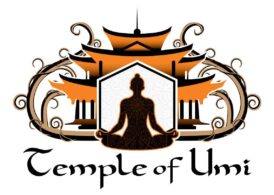Explore effective techniques to enhance self-awareness. From mindfulness to feedback, understand yourself better and make impactful changes in your life and career.
Introduction
Self-awareness is the conscious knowledge of one’s character, feelings, motives, and desires. Enhancing self-awareness is a pivotal step towards personal development, enabling individuals to understand their true nature and how their thoughts and actions align with their values and goals. Enhancing self-awareness is about introspection and understanding how others perceive us and how our environment influences us.
Definition of Self-Awareness and Its Importance
- Self-knowledge is understanding the intricate layers of one’s personality, including strengths, weaknesses, thoughts, beliefs, motivation, and emotions.
- Self-control: As self-awareness increases, so does the ability to manage impulses and emotions, leading to better personal and professional outcomes.
- Adaptability: Self-awareness allows individuals to understand how to adapt to varying situations and environments, fostering resilience.
Brief Overview of Benefits That Enhancing Self-Awareness Can Provide
- Improved relationships: By understanding oneself better, one can communicate more effectively and empathize with others, reducing conflicts and building stronger relationships.
- Enhanced decision-making: Self-aware individuals can make more informed decisions that align closely with their values and long-term objectives.
- Career advancement: Increased self-awareness can lead to better job performance and leadership skills, as it encourages an honest assessment of capabilities and areas for improvement. Learn more.
The Foundations of Self-Awareness
Understanding oneself fully requires a comprehensive approach that includes cognitive, emotional, and behavioral dimensions.
Understanding the Concept: Cognitive, Emotional, and Behavioral Aspects
- Cognitive aspects: These involve recognizing one’s thought processes and biases. Cognitive self-awareness helps in identifying how one’s thoughts influence decisions and behaviors.
- Emotional aspects: This includes understanding and managing one’s emotions effectively. Emotional self-awareness is crucial for handling interpersonal dynamics and personal challenges.
- Behavioral aspects: Observing one’s actions and reactions in different situations. Behavioral self-awareness helps individuals adjust their actions to align more closely with their personal and professional goals.
The Psychological Theories Behind Self-Awareness
- Johari Window: This is a model that helps people better understand their relationships with themselves and others. It involves four quadrants: open, hidden, blind, and unknown, each representing aspects of personal and mutual knowledge or ignorance.
- Self-Discrepancy Theory: This theory suggests that self-awareness is the recognition of discrepancies between the actual self (how one is), the ideal self (how one would like to be), and the ought self (how one should be). Understanding these discrepancies can drive personal growth and reduce internal conflict. Learn more.
Assessing Your Current Level of Self-Awareness
To enhance self-awareness, it’s crucial to understand where you currently stand. Identifying your baseline can help you pinpoint areas that need improvement and tailor your approach to developing deeper self-awareness.
Common Signs of Low Self-Awareness
- Difficulty Understanding Emotions: You may struggle to identify what you’re feeling or why you’re feeling a certain way.
- Reactive Behavior: Frequently feeling surprised by your reactions to situations or regretting actions taken without thought.
- Challenges in Relationships: Consistent misunderstandings or conflicts with others result from a lack of insight into one’s behaviors and their impacts.
Tools and Assessments to Measure Self-Awareness
- 360-Degree Feedback: Gathering insights from peers, supervisors, and subordinates can provide a rounded view of how others perceive you, highlighting discrepancies between self-perception and external observations.
- Reflective Journaling: Regularly writing down thoughts, feelings, and reactions to daily events can help track patterns and triggers in behavior, fostering greater self-awareness.

Techniques to Enhance Self-Awareness
Enhancing self-awareness is a dynamic process that involves engaging with both introspective practices and external feedback. Here are some effective techniques to cultivate higher self-awareness:
Mindfulness and Meditation Practices
- Focused Attention: Simple meditation practices, such as breathing exercises or mindfulness meditation, can increase awareness of the present moment and decrease emotional reactivity.
- Body Scan: Regularly performing body scans can help you become more aware of physical sensations and their emotional states.
The Role of Therapy and Coaching
- Professional Guidance: Therapists and coaches can offer invaluable feedback on your self-awareness gaps and provide strategies to address them. They facilitate more profound insight into unconscious patterns and behaviors.
- Structured Development: Working with a professional can help structure your journey toward self-awareness, keeping you accountable and motivated.
Keeping a Daily Journal: Benefits and Tips for Consistency
- Benefits:
- Emotional Clarity: Journaling can help clarify and regulate emotions by providing a private space to express thoughts and feelings.
- Behavioral Patterns: Journal entries can reveal patterns in behavior and triggers over time, making it easier to predict and manage reactions.
- Tips for Consistency:
- Set a Routine: Dedicate a specific time each day for journaling, even for a few minutes.
- Keep it Accessible: Maintain a journal in a convenient place, and consider digital options if you prefer typing to writing by hand.
The Role of Feedback in Self-Awareness
How to Seek and Accept Feedback Effectively
- Be Open-Minded: Approach feedback with the understanding that it is a valuable tool for enhancing self-awareness. Remain receptive to new perspectives about your behavior or performance.
- Choose the Right Sources: Seek feedback from people whose opinions you trust and respect, such as mentors, colleagues, friends, and family.
- Ask Specific Questions: Rather than asking for general feedback, focus on specific aspects of your behavior to gain more actionable insights. For instance, you might ask, “How could I have handled today’s meeting more effectively?”
- Listen Actively: When receiving feedback, listen without interrupting or defending yourself. Acknowledge the feedback and thank the giver for their input.
Dealing with Criticism and Using it Constructively
- Stay Calm: When faced with criticism, maintain your composure. Allow yourself time to process the information rather than react defensively.
- Analyze and Reflect: Consider the criticism objectively. Reflect on whether it aligns with other feedback you’ve received and how it relates to your self-perceived areas for improvement.
- Develop an Action Plan: Use the input to set specific goals for personal development. For instance, if the criticism concerns your communication skills, you might attend a workshop or read relevant books.
- Regular Review: Periodically review the feedback you’ve received and your progress towards the goals you’ve set. This will help you adjust your approach and continue improving your self-awareness.
Challenges and Obstacles in Developing Self-Awareness
Common Pitfalls: Denial, Biases, and Emotional Resistance
- Denial: Often, individuals may refuse to acknowledge aspects of their personality or behavior pointed out by others, impeding the enhancement of self-awareness.
- Biases: Cognitive biases can distort one’s self-perception, leading to an inaccurate assessment of one’s abilities or behavior.
- Emotional Resistance: Emotional discomfort can deter individuals from facing truths about themselves, hindering self-awareness growth.
Strategies to Overcome These Challenges
- Encourage Self-Compassion: Recognize that everyone has flaws and that acknowledging them is a strength, not a weakness. Practice self-compassion to ease the discomfort that comes with self-discovery.
- Seek Objective Perspectives: Involve people who can provide impartial insights into your behavior or decisions. This could mean working with a professional coach or therapist.
- Educate Yourself on Biases: Learn about common psychological biases and actively challenge them. Reflective journaling and mindfulness can help you become more aware of your biases in real time.
- Embrace Discomfort: View emotional discomfort as a growth opportunity. Engaging with uncomfortable feelings can lead to significant breakthroughs in self-awareness.
Applying Self-Awareness to Improve Personal and Professional Life
Enhancing Relationships Through Better Self-Understanding
Enhancing self-awareness significantly impacts personal relationships by fostering a deeper understanding of one’s emotions, triggers, and communication styles. This introspective knowledge allows individuals to:
- Communicate more effectively: By understanding your emotional responses and triggers, you can clearly articulate your feelings and needs, reducing misunderstandings and conflicts.
- Empathize with others: Increased self-awareness enables you to recognize similar traits and emotions in others, enhancing empathy and strengthening connections.
- Adjust behaviors: Recognizing your impact on others can lead you to modify behaviors that may negatively affect your relationships.
Decision-Making and Leadership: The Impact of Self-Awareness
In the professional realm, enhancing self-awareness plays a crucial role in decision-making and leadership by:
- Improving judgment: Self-aware leaders are more likely to make balanced and informed decisions because they understand their biases and limitations.
- Boosting leadership effectiveness: Leaders with high self-awareness are better equipped to inspire and motivate their teams, as they are perceived as genuine and trustworthy.
- Fostering a positive workplace culture: When leaders model self-awareness, it encourages a culture of open communication and continuous improvement.
Maintaining and Growing Your Self-Awareness
Long-Term Strategies for Self-Awareness Upkeep
Maintaining and enhancing self-awareness is an ongoing process. Some effective long-term strategies include:
- Regular self-reflection: Dedicate time regularly to reflect on your thoughts, feelings, and behaviors. This could be through meditation, journaling, or quiet contemplation.
- Continued feedback: Seek and welcome feedback from others regularly. This could be from peers, mentors, or through professional feedback systems.
- Consistent practice of mindfulness: Engage in mindfulness exercises daily to enhance your moment-to-moment awareness.
Lifelong Learning and Adaptability
To grow self-awareness throughout your life:
- Pursue new experiences: Stepping out of your comfort zone and exposing yourself to new situations can provide insights into your personal preferences, strengths, and areas for improvement.
- Adapt to feedback and experiences: Use what you learn from feedback and new experiences to adapt your behavior. This adaptability is critical to personal and professional growth.
- Educate yourself: Continuously seek knowledge on emotional intelligence, psychology, and related fields to deepen your understanding of self-awareness and its applications.

Final words: Embracing the Path to Enhanced Self-Awareness
In exploring enhancing self-awareness, we’ve uncovered the foundational aspects, practical tools, and the profound benefits of becoming more attuned to our inner selves. To recap the key points:
- Understanding Self-Awareness: We began by defining self-awareness and its critical role in personal development. Self-awareness is the conscious knowledge of one’s character, feelings, motives, and desires.
- Tools and Techniques: We discussed various methods to enhance self-awareness, including mindfulness meditation, reflective journaling, and the importance of feedback from others. These tools help us see ourselves more clearly and objectively.
- Overcoming Challenges: Acknowledging and overcoming obstacles, such as biases and emotional resistance, is crucial for self-awareness growth. We learned strategies to navigate these challenges effectively.
- Practical Applications: We explored how enhanced self-awareness impacts our relationships and decision-making processes, particularly in professional settings where leadership and interpersonal relationships benefit greatly from a deep understanding of oneself.
Self-awareness is not a destination but a continuous journey that requires commitment and curiosity. As you strive to deepen your self-awareness, remember:
- Stay Curious: Always be willing to explore and question your thoughts and emotions.
- Seek Feedback: Open yourself to feedback and use it constructively to foster growth.
- Practice Regularly: Consistency is vital in any practice, especially regarding self-awareness.
- What is Ayahuasca?
- Where to get Ayahuasca in the USA
- Top Ayahuasca retreats in the USA. Learn more.
- Cost of Ayahuasca Retreat: Balancing Cost and Experience. Learn more.
- What is trauma bonding?
- A Journey into the Healing Properties of Psychedelic Mushrooms. Learn more.
- Ayahuasca Retreat Georgia – Experience Spiritual Awakening
- Spiritual Retreats Georgia
- Shaman in America Exploration
- Shamanism – Shamanic healing










